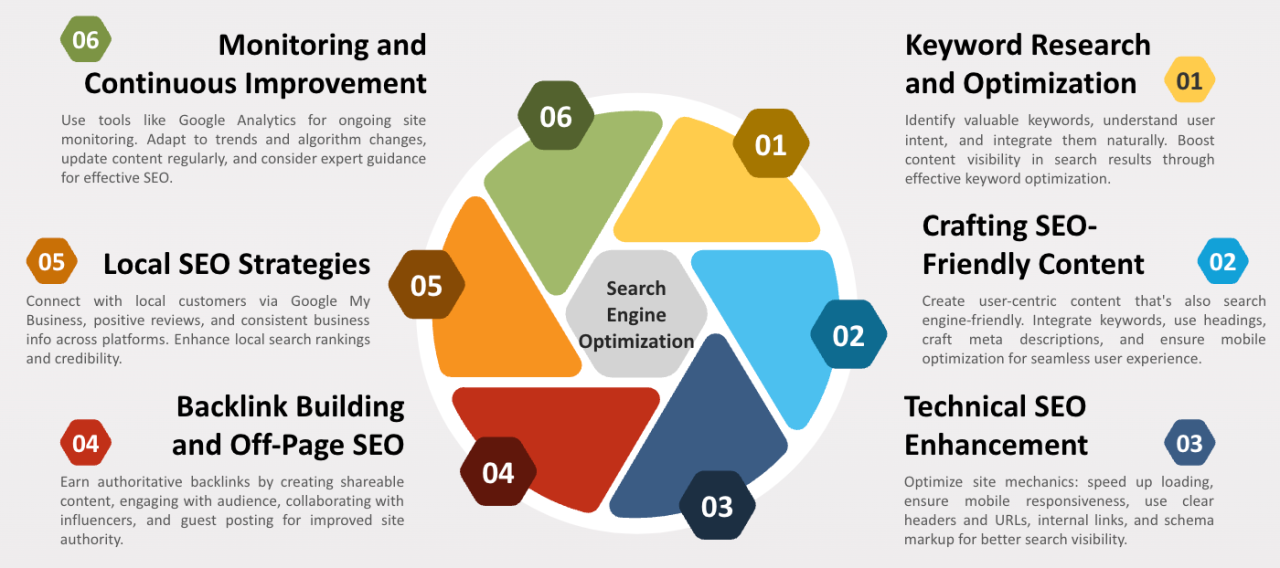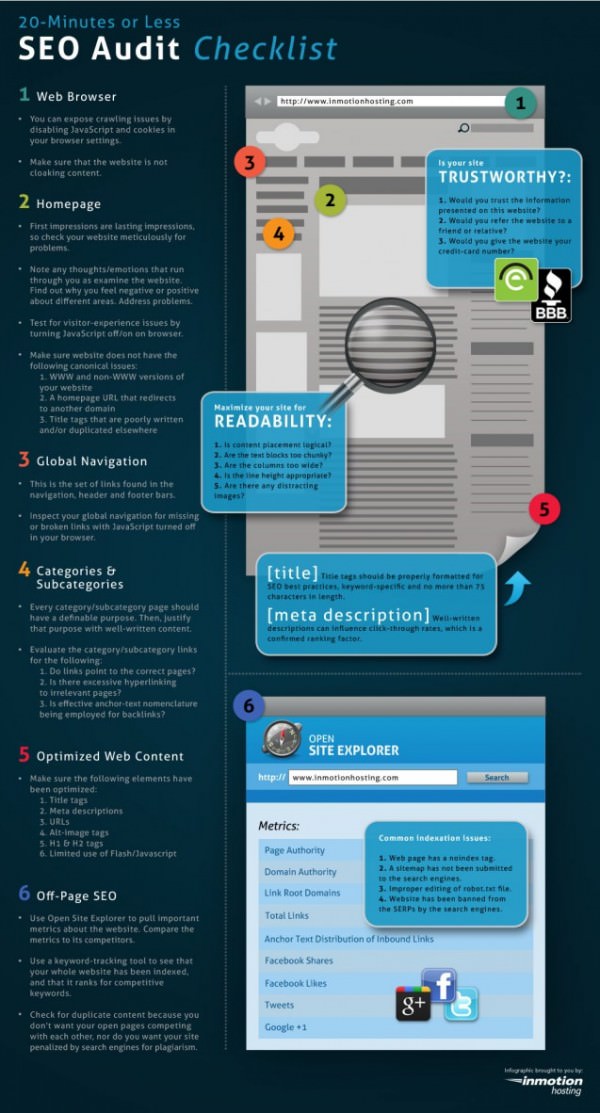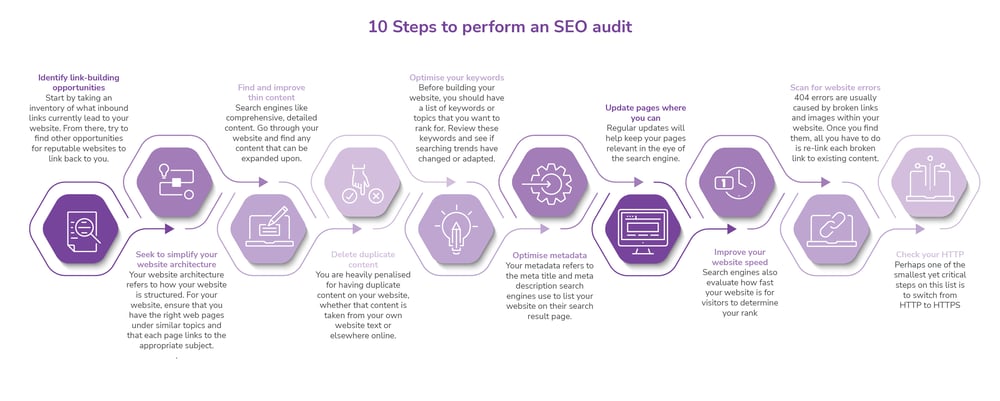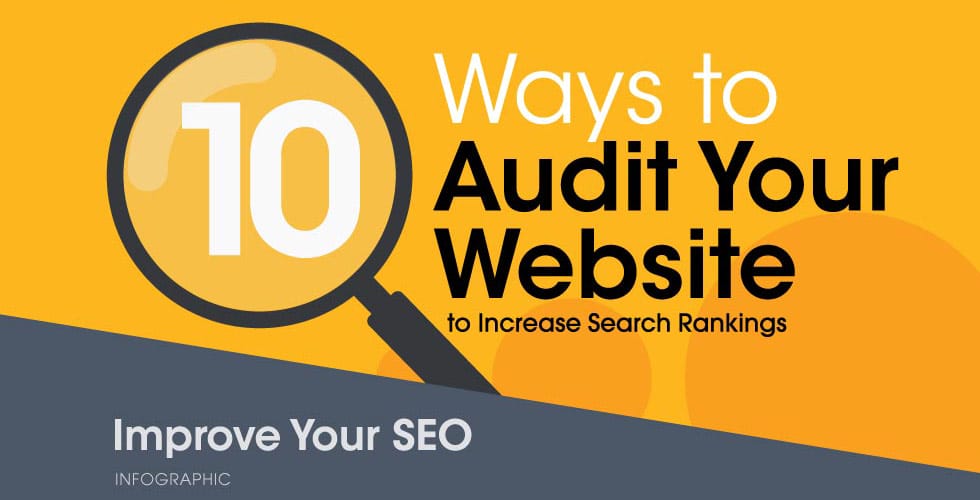![]()
Thank you for reading this post, don't forget to subscribe!
Uncover the secrets to boosting your website’s rankings with a comprehensive SEO site audit – don’t miss out on this!

Image courtesy of via DALL-E 3
Table of Contents
- Introduction: What is an SEO Site Audit?
- Why You Need an SEO Audit
- Starting Your SEO Audit: A Checklist
- Technical SEO: Making Sure Search Engines Can Visit
- On-Page SEO: Making Content Shine
- Off-Page SEO: Making New Friends
- User Experience (UX): Happy Visitors, Happy Website
- Using Analytics: The Score Card of Your Website
- Common SEO Mistakes to Avoid
- SEO Tools To Help You Out
- Conclusion: SEO Audit Success
Introduction: What is an SEO Site Audit?
In the vast world of the internet, websites come and go like trends. But what if you have a cool website that you want everyone to see? That’s where SEO comes in – think of it as a magic spell that helps your website stand out amongst the crowd. And one essential part of this spell is the SEO site audit.
Now, you might be wondering, “What is an SEO site audit, and why do I need it?” Well, think of it like a check-up for your website. Just like you visit the doctor to make sure you’re healthy, an SEO site audit checks your website’s health and suggests ways to make it even better. The magician behind all this is the SEO strategist. These clever folks understand how to make websites more visible to search engines like Google, which is key for getting more visitors to your website.
And when we talk about Google, we mean serious business. Google SEO optimization is like the ultimate goal for websites. When Google loves your website, it shows it to more people, bringing in more visitors. Plus, who wouldn’t want to be best buddies with Google, right? That’s why an SEO site audit is crucial – it helps you get on Google’s good side!
Why You Need an SEO Audit
SEO services are like a superhero team for websites, making sure they perform their best in the online world. One crucial member of this team is the SEO audit, and let me tell you why it’s so important.
Catch and Fix Website Errors
Have you ever seen a broken toy that needed fixing? Just like toys, websites can have errors that need to be spotted and repaired. An SEO audit acts like a detective, uncovering issues like broken links, missing images, or other mistakes that could be holding your website back from reaching its full potential.
Stay Updated with Google’s Algorithms
Imagine if your favorite video game changed its rules every week. That’s what Google does with its search algorithms. By conducting regular SEO audits, you can stay on top of these changes and adjust your website to meet the latest requirements. This way, you can always be in Google’s good books and climb higher in search results.
Better Understand Your Site’s SEO Performance
Think of SEO audits as a report card for your website’s performance in search engines. By analyzing the results of an audit, you can see what’s working well and what needs improvement. This insight helps you make informed decisions to boost your website’s visibility and attract more visitors.
Starting Your SEO Audit: A Checklist
When getting ready to conduct an SEO audit, it’s crucial to have a checklist to ensure you cover all the necessary steps. Here are some key areas to focus on:

Image courtesy of www.linkedin.com via Google Images
Technical SEO Check-Up
First things first, let’s make sure your website is set up correctly for search engines to crawl and index it. This includes checking for things like proper URL structure, meta tags, and sitemaps.
On-Page SEO Elements
On-page SEO is all about optimizing individual pages to make them attractive to both users and search engines. This involves creating high-quality content, using relevant keywords, and optimizing meta data.
Off-Page SEO Factors
Off-page SEO focuses on building your website’s authority and reputation through external factors like backlinks from other reputable sites. It’s essential to analyze your backlink profile and work on acquiring quality links.
By following this checklist and paying attention to these key areas, you’ll be well on your way to conducting a thorough and effective SEO audit for your website.
Technical SEO: Making Sure Search Engines Can Visit
When it comes to Technical SEO, our main aim is to ensure that search engines can easily crawl and index our website. This is crucial for improving our site’s visibility and rankings. Let’s dive into some key aspects of Technical SEO that help make this possible.
Site Speed: Fast as Lightning
Imagine waiting for a website to load – it can be frustrating, right? Search engines feel the same way. If a website is slow, visitors might leave, and search engines may rank it lower. That’s why having a fast-loading website is essential for good SEO.
Mobile-friendliness: For Phones and Tablets
Most people today use their phones or tablets to browse the internet. So, it’s important that our website is designed to work well on these devices. A mobile-friendly site not only provides a better user experience but also boosts SEO rankings, as search engines prioritize mobile-responsive websites.
Safety Measures: Keep it Secure
Having a safe and secure website is not only important for protecting your data and visitors’ information but also for maintaining a good reputation with search engines. Implementing security measures like SSL certificates and regular updates can help safeguard your website and enhance its SEO performance.
On-Page SEO: Making Content Shine
In the world of SEO, on-page elements like keywords play a crucial role in making your website stand out to search engines like Google. Let’s dive into how these elements can help your website shine with Google SEO optimization.

Image courtesy of www.smartinsights.com via Google Images
Choosing the Right Keywords
Keywords are the words or phrases people type into search engines when looking for something. By selecting the best keywords related to your content, you increase the chances of your website appearing in search results. It’s like picking the right key to unlock the door to your website!
Content Quality: Write Cool Stuff
Good content is not just about using fancy words; it’s about creating engaging and valuable information for your audience. By producing high-quality content that is informative, entertaining, and relevant, you can keep visitors coming back for more!
Titles and Descriptions: Make Them Click
The titles and descriptions of your web pages are like the cover of a book – they need to be catchy and intriguing to make people want to click and visit your site. Crafting compelling titles and descriptions can boost your click-through rates and improve your site’s visibility in search results.
Off-Page SEO: Making New Friends
Just like getting a thumbs up from a friend, having other websites link to yours is a big deal in the online world. These links, known as backlinks, tell search engines that your site is valuable and trustworthy. The more backlinks you have from high-quality websites, the more search engines will see your site as an authority in your field.
Social Media: The Cool Kids’ Table
Social media isn’t just for sharing memes and funny videos; it can also help boost your website’s SEO. Being active on platforms like Instagram, Facebook, and Twitter can increase your online visibility and drive traffic to your site. When people like and share your content on social media, it tells search engines that your website is popular and relevant.
User Experience (UX): Happy Visitors, Happy Website
In this section, we will discuss how making a site easy and fun to use helps with SEO.

Image courtesy of www.demodia.com via Google Images
Navigation: Find Things Fast
A good website helps people find what they’re looking for quickly. Let’s see how that helps.
Engagement: Keeping Visitors Interested
When visitors like your site, they stay longer. We’ll chat about ways to make a website more interesting.
Using Analytics: The Score Card of Your Website
Here we explain how looking at data helps us know what’s working and what’s not.
Understanding What Numbers and Charts Say
Big numbers and fancy charts can tell us a lot. We’ll talk about what they mean for your website.
Making Decisions Based on Data
We will describe how to use all that information to make your website even better.
Common SEO Mistakes to Avoid
Some things can hurt a site’s SEO. Let’s point out these boo-boos so you can avoid them.

Image courtesy of totheweb.com via Google Images
Keyword Stuffing: Too Much of a Good Thing
Stuffing loads of keywords in your text doesn’t work. It might seem like a good idea to repeat the same words over and over, but search engines are smart. They know when you’re trying too hard to rank for certain keywords. Instead, use your keywords naturally throughout your content to make it readable and valuable for your visitors.
Ignoring Mobile Users: Don’t Leave Them Out
Forgetting about people on phones or tablets is a big no-no. More and more people are using their mobile devices to search the web, so if your website isn’t mobile-friendly, you’re missing out on a lot of potential visitors. Make sure your site looks and functions great on all devices to provide a seamless experience for everyone.
Slow Site Speed: Don’t Make Them Wait
No one likes to wait for a website to load. If your site takes too long to load, visitors will leave before they even see your content. Slow site speed not only frustrates users but also affects your search engine rankings. Optimize your images, clean up your code, and use a reliable hosting provider to ensure your website loads quickly and keeps visitors engaged.
SEO Tools To Help You Out
When it comes to conducting an SEO audit, having the right tools can make the process much smoother and more effective. In this section, I’ll introduce you to some tools that can help you analyze your website’s performance and make improvements to boost your rankings.
Free Tools for Starters
If you’re just starting with SEO audits and don’t want to spend any money, there are plenty of free tools available to help you out. Tools like Google Analytics and Google Search Console can provide valuable insights into your website’s performance, including traffic sources, user behavior, and keyword rankings. These tools can help you identify areas for improvement and track your progress over time.
Another helpful free tool is Screaming Frog SEO Spider, which can crawl your website to identify technical issues that may be impacting your SEO. It can detect broken links, missing meta tags, duplicate content, and more, giving you a comprehensive overview of your site’s health.
Paid Tools for Pros
For more advanced users and professionals looking to take their SEO audits to the next level, there are paid tools that offer additional features and capabilities. Tools like SEMrush and Ahrefs provide in-depth keyword research, competitor analysis, and backlink monitoring to help you fine-tune your SEO strategy.
Another popular paid tool is Moz Pro, which offers a suite of SEO tools for keyword research, rank tracking, and site audits. With detailed reports and actionable insights, Moz Pro can help you optimize your website for better search engine visibility.
Whether you’re a beginner or a seasoned SEO expert, using the right tools can help you streamline your SEO audit process and achieve better results. By leveraging these tools effectively, you can identify opportunities for improvement, track your progress, and ultimately boost your website’s rankings in search engine results.
Conclusion: SEO Audit Success
Throughout this guide, we’ve covered important aspects of SEO audits and why they are crucial for improving a website’s rankings. By conducting regular audits of your site, you can identify and fix errors, stay updated with Google’s algorithms, and better understand your site’s SEO performance.
Starting with a checklist that includes a technical SEO check-up, on-page SEO elements, and off-page SEO factors, you can ensure that your website is optimized for search engines. Technical SEO involves making sure search engines can easily crawl and index your site, while on-page SEO focuses on creating high-quality content with the right keywords.
In addition to technical and on-page SEO, off-page SEO is equally important for boosting your website’s visibility. Building backlinks and being active on social media can help improve your site’s SEO performance.
Furthermore, focusing on user experience, such as easy navigation and engaging content, can help keep visitors on your site longer, signaling to search engines that your site is valuable and relevant.
Using analytics to track your website’s performance is key to making data-driven decisions and continuously improving your SEO strategies.
Avoiding common SEO mistakes like keyword stuffing, ignoring mobile users, and slow site speed is essential for maintaining a healthy website and ensuring optimal SEO performance.
Lastly, utilizing SEO tools, both free and paid, can help streamline the audit process and provide valuable insights into your site’s SEO health.
By implementing the strategies outlined in this guide and conducting regular SEO audits, you can set your website up for success and improve its rankings in search engine results. Remember, SEO is an ongoing process, so stay vigilant and keep optimizing your site for the best results!
Get Your Free SEO Report Now.
GET YOUR WEBSITE Seo Report
About us and this blog
We are a digital marketing company with a focus on helping our customers achieve great results across several key areas.
Request a free quote
We offer professional SEO services that help websites increase their organic search score drastically in order to compete for the highest rankings even when it comes to highly competitive keywords.
Subscribe to our newsletter!
More from our blog
See all postsRecent Posts
- Boost Your Pagerank with Proven SEO Tips April 2, 2024
- SEO Cheat Sheet: Top Google Tips April 2, 2024
- Boost Sales with Google SEO Optimization April 2, 2024










